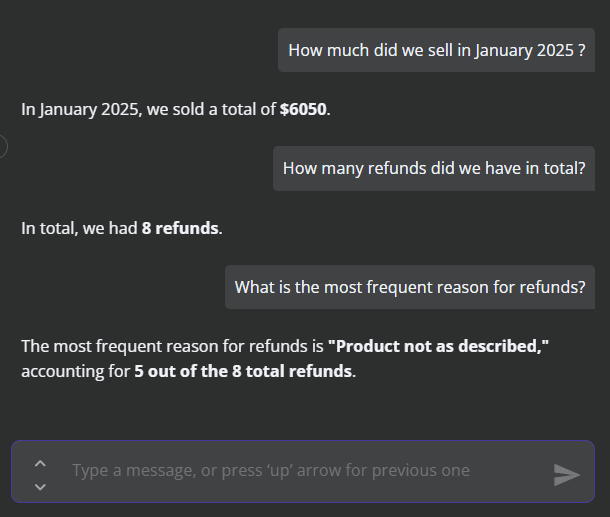Marketing AI agents have transformed from far-fetched sci-fi to everyday business reality. In 2025, these AI systems don’t just support marketing—they drive it. Yet despite their growing presence, most marketers don’t fully understand how these digital partners actually work.
Think about it: every day, marketing teams leave critical customer interactions in the hands of AI systems they barely understand. It’s like trusting your car to a mechanic you’ve never met.
And the stakes are higher than you realize. Companies with effective AI marketing strategies are seeing higher conversion rates and reduced customer acquisition costs.
One example would be a Chinese retailer, Haomaiyi (I also didn’t know anything about them before researching this article). They have implemented an AI based virtual fitting assistant.
The result? They have a 12.4% conversion rate, and they have reduced their return rate by 30%.
Understanding Marketing AI Agents
Think of marketing AI agents as smart, tireless helpers for your marketing. They’re software that learns and acts on its own to handle specific tasks, using tech like understanding human language and spotting patterns in data. This means more personalized marketing that works around the clock.
However, don’t think of AI agents as simple if-this-then-that (IFTTT) automation flows that we can already create for a few years now.
They are able to connect to various platforms and systems, access the data, manipulate or analyze the data, and provide the output you are looking for.
Currently, one of the best ways to do this is with n8n. This is a low-code automation tool that allows you to integrate any data from your company with any AI model you wish to use.
For example, here’s a workflow that helps you analyze your business data using an AI chatbot interface. With it, you don’t have to manually check all the data sources you have (Google Sheets, ecommerce platform, databases, etc.). You can just connect them to the bot and ask away.

Making AI Agents Work for Your Marketing
So, you’re thinking about using AI in your marketing? Awesome! But first, let’s figure out what you actually want it to do. Think about your current headaches – maybe you want more sales, happier customers, or content that really clicks.
Turn those big ideas into clear, measurable goals. Instead of “better emails,” aim for “20% more opens in three months using AI subject lines.” Makes sense, right?
Think of it like setting up a project. You need to know the problem you’re solving, how you’ll know if you’ve succeeded (those are your KPIs!), a rough timeline, and what you’ll need (data, the AI tool itself, and maybe some brainpower).
For example, if you’re implementing an AI agent to help with customer segmentation, your framework might look like this:
Business Problem: Customer targeting is too broad, resulting in low conversion rates
KPIs: Increase conversion rate by 15%, reduce cost per acquisition by 10%
Timeline: 3 months for implementation, 6 months to achieve target results
Resources: Customer purchase data, website behavior data, AI segmentation workflow
But here’s the thing: AI is only as smart as the info you feed it. So, let’s talk data. Think of all the places you keep customer info – your sales system, website, email platform, and social media.
You need to get this data in good shape – clean it up, make sure it’s consistent, and maybe even add some extra details. This will help the AI model understand it better and give a better output.
The final step? Turning those AI insights into real marketing actions. Don’t just let the AI spit out numbers.
Have regular chats with your team about what the AI is telling you. Decide what’s important to act on, maybe test a few ideas on a small group first, and then track the results.
This way, you’re constantly learning and making your marketing even smarter.
Leveraging AI in Digital Advertising
AI has been used in marketing for many years now. Just think of Google’s Automated bidding strategies. They take all the user information Google has access to (and it’s a lot of data) to improve your Google Ads campaigns and get you more conversions (allegedly).
But let’s have a look at what you can do with a custom marketing AI agent that uses the data you have.
Personalizing Marketing Campaigns
Think of all the marketing campaigns that you run. Now, think what it would mean to personalize them beyond the current capabilities.
With an AI agent, you would be able to take into account all the customer data you have (orders, account logins, product preferences, etc.) and deliver highly targeted messages.
Let’s take ecommerce email marketing campaigns as an example. Currently, you can send emails for products left in the basket, new product launches, or promotions you are running for product categories that they have shown interest in.
But, besides the cart abandonment recovery emails, all that is limited to how much time you are willing to spend on creating customer segments. But AI can create as many segments as you need to increase your chances of getting a new sale. Even if you have 1 customer in that segment.
Also, you can use data on products that are often bought together and send them as suggestions for their next purchase. To go even further, you can instruct the AI to include some discount coupons based on the business goals that you have.
Enhancing Creative Testing and Optimization
Ad creatives and ad copy can be a bit of a guessing game. You think about what could resonate with your audiences, test the ads, and analyze the results. But after a while, you might run out of ideas to test.
A marketing AI agent can generate new ad elements based on what’s already working well, constantly making your ads more effective. Or you can use it to scrape your competitors’ ad copy and creatives to give you more suggestions.
You can also use it to do sentiment analyses for your ads and feed it the ad performance data. This helps you go beyond just clicks and create ads that truly connect with your audience.
Predictive Lifetime Value Modeling
Ever wish you knew which new customers would become your biggest fans? AI can help with that.
By analyzing past behavior and purchase patterns, AI can predict how valuable a customer will be over their entire lifetime.
This means you can focus your ad efforts on attracting those high-value customers who will stick around and spend more in the long run, rather than just chasing quick sales. It’s about playing the long game for bigger rewards.
Conclusion
So, as we look around at how marketing is shaping up in 2025, the marketing AI agents are really gaining traction. Just look up n8n tutorials on YouTube.
And they’re not just fancy gadgets; they’re becoming essential for how your brand connects with the customers. Think of them as super-efficient helpers that can handle everything from digging through data to even writing initial drafts of content.
However, you need to be careful not to use AI for everything. You need to see it as a tool that can help you with your work, but you still have to look at the output critically.
Otherwise, you will run the risk of overly relying on AI, which diminishes your critical thinking and decision-making skills.



